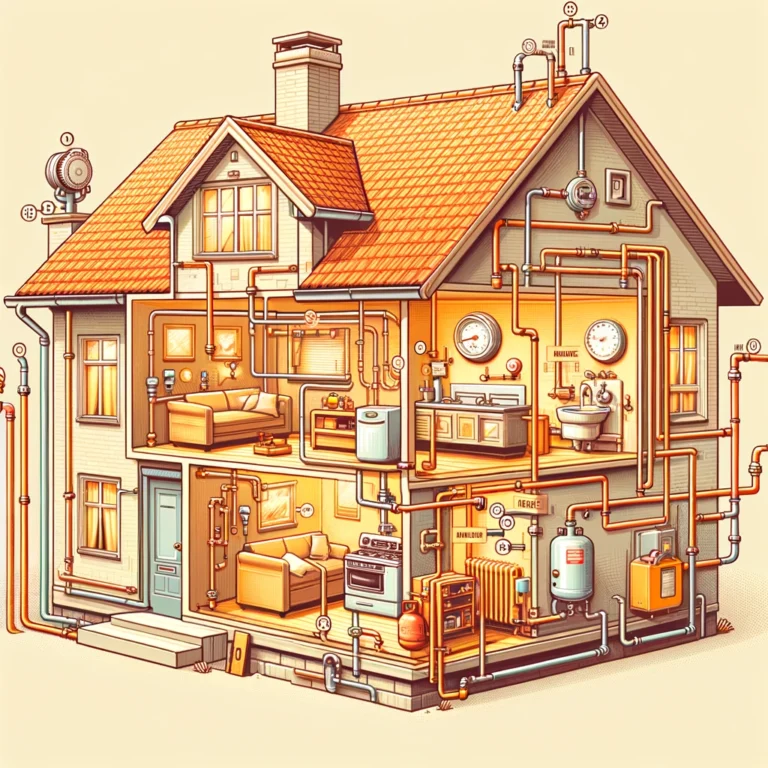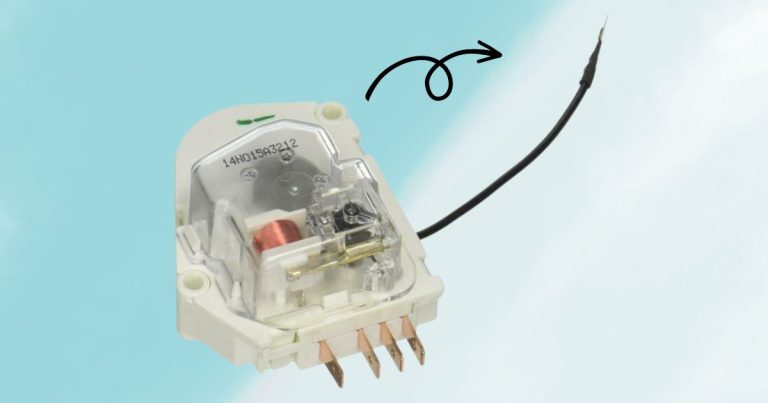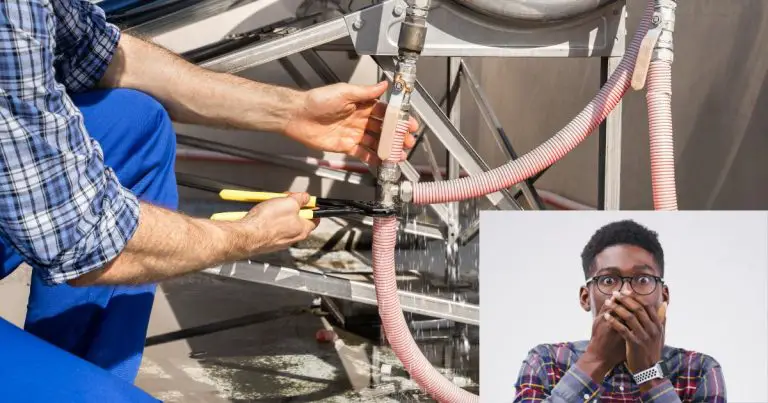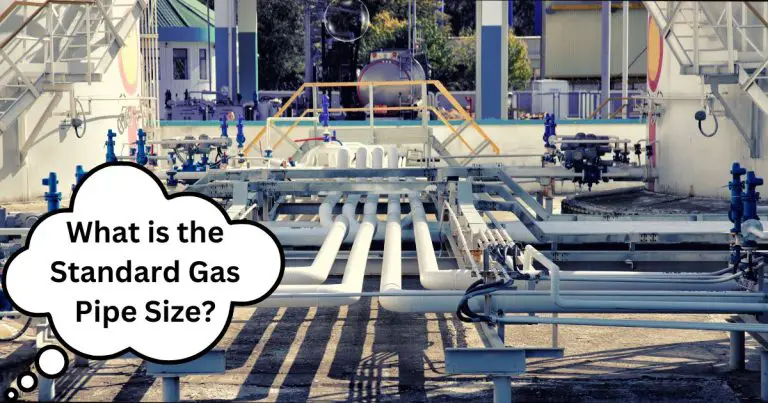Natural Gas vs. Electric Heating: Which is More Efficient for Your Home?
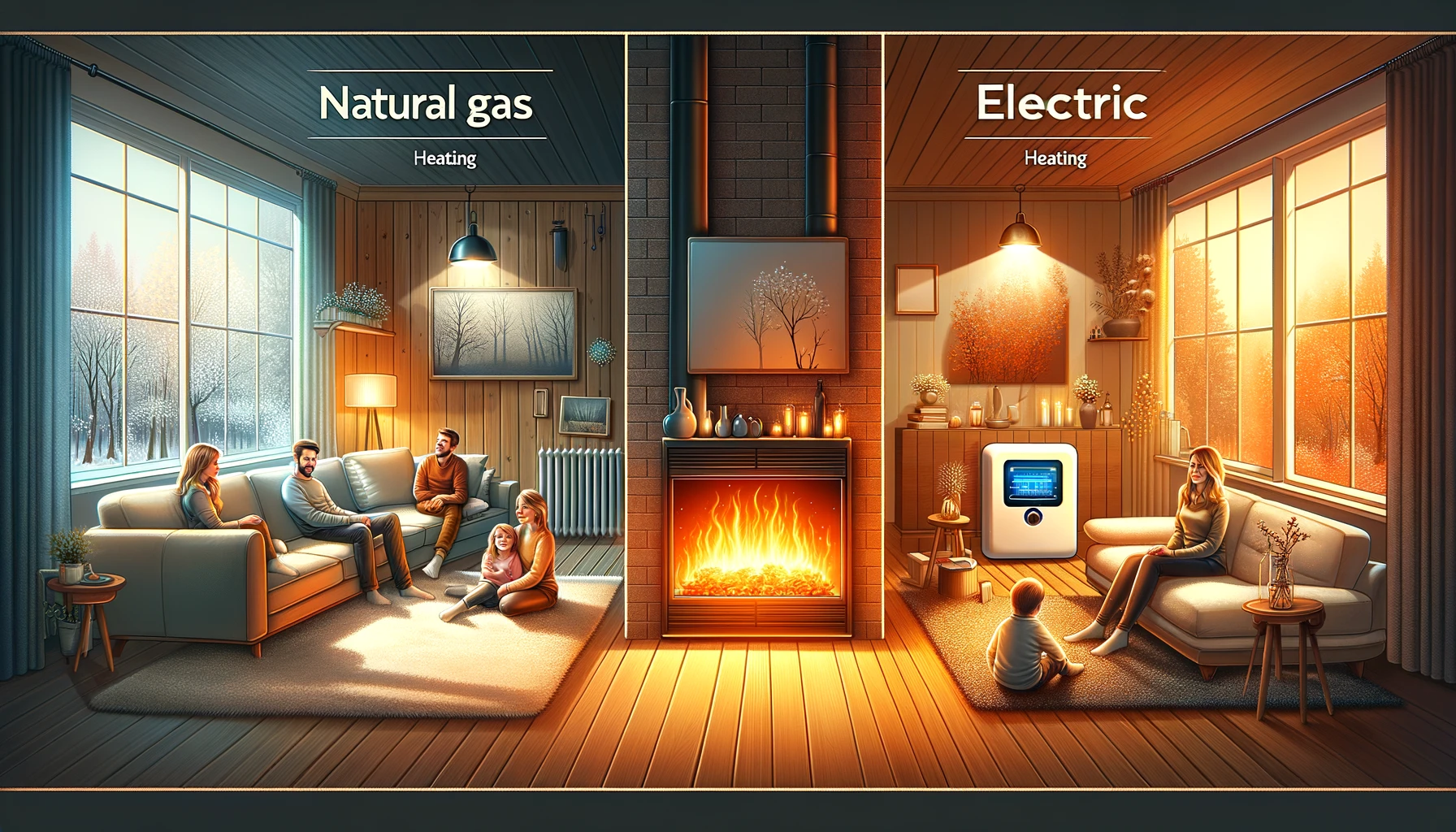
Key Takeaways:
- Efficiency and Cost Matter: Gas heaters warm up quickly and are often cheaper to run in cold areas, but electric heaters, despite potentially higher operational costs, offer simplicity and ease of use.
- Environmental Impact and Installation Considerations: Gas heaters emit CO2 and require complex installation, while electric heaters, if powered by renewable sources, offer a cleaner alternative without the need for gas lines or vents.
- Maintenance and Dependability: Regular safety checks are necessary for gas heaters, whereas electric heaters may need more frequent repairs and are dependent on the stability of the electrical grid.
Deciding between natural gas and electric heating for your home can feel like a big puzzle. Each option has its own benefits and drawbacks, from how much they cost to run, to how easy they are to install, and even their impact on our environment.
It’s not just about keeping your house warm during the chilly months; it’s also about making a smart choice that suits your lifestyle, budget, and values.
In this article, we’ll dive deep into the world of natural gas vs. electric heating, breaking down everything you need to know to make an informed decision for your home. Let’s get started.
Efficiency and Cost
First off, how well do these systems work and what do they cost? Gas heaters are known for warming up rooms quickly and evenly. They use flames to heat air, which then spreads around your room. Because of this, they can work fast and use less energy. This means lower bills for you.
Electric heaters, on the other hand, are simpler. They turn electricity into heat. But, this process can use a lot of electricity, especially in colder places. So, while electric heaters are cheaper to buy, they might cost more to run.
Installation and Maintenance
Now, let’s talk about setting these systems up and taking care of them. Putting in a gas heater can be tricky. It needs a gas line and proper venting for safety. This can add up in cost. But once it’s set up, keeping it running smoothly doesn’t take much.
Electric heaters are easier to install. Most times, you just plug them in. There’s no need for gas lines or vents. However, they might need more care over time. Parts can wear out and might need replacing.
Environmental Impact
Thinking about the planet is important too. Gas heaters burn fossil fuels. This releases CO2, a gas that warms our planet. If we use less gas, we help the Earth.
Electric heaters might seem cleaner. But, it depends on how the electricity is made. If it comes from coal or gas, it’s still not great for the planet. Yet, if your area uses wind or solar power, electric heating is much cleaner.
Pros and Cons of a Gas Heater
Let’s dive a bit deeper into what makes gas heaters a choice worth considering, as well as what might make you think twice.
Pros
- Warms up spaces quickly: First off, gas heaters warm up spaces quickly. Imagine coming home on a cold day. You turn on your gas heater. In no time, your room feels cozy. It’s like instant warmth. This quick action makes gas heaters a favorite for many.
- More efficient in cold areas: If you live where winters are harsh, gas heating can be a lifesaver. It keeps running strong, even when it’s freezing outside. This means your home stays warm without the heater working overtime. It’s efficient and effective, exactly what you need during a snowstorm.
- Often cheaper to run: Often, gas heaters are cheaper to run. Yes, the initial setup might cost more. But over time, you’ll likely see lower energy bills. Gas is often less expensive than electricity, especially for heating. This can mean more money in your pocket each month. Who doesn’t want that?
Cons
- Installation can be costly and complex: Installation can be costly and complex. Getting a gas heater set up involves more than just plugging it in. You need a gas line. You need proper venting. This can mean hiring experts and possibly a big upfront cost. It’s a hassle and an investment.
- Uses fossil fuels, which harm the planet: Gas heaters use fossil fuels,this is a biggie. Burning gas releases carbon dioxide, a greenhouse gas. This contributes to global warming. If you’re trying to be more eco-friendly, this is a downside. It’s something to think seriously about.
- Needs regular safety checks: Gas heaters need regular safety checks. This isn’t a “set it and forget it” deal. You need to keep an eye on it. Gas leaks can be dangerous. Carbon monoxide is a silent threat. Regular checks ensure your heater is safe to use. It’s extra work, but it’s important for your safety.

Pros and Cons of an Electric Heater
Electric heaters come with their own set of advantages and drawbacks.
Pros
- Easy to install: Electric heaters are easy to install and use. You just plug them in. No need for special setups or installations. This means you can start heating your room right away. It’s perfect for anyone wanting a simple solution. No fuss, no mess, just warmth.
- Cleaner if powered by renewable energy: If your electricity comes from sources like wind or solar, your heating is green. This is great for the planet. It reduces your carbon footprint. It feels good to heat your home without harming the earth.
- Doesn’t need vents or gas lines: Electric heaters don’t need vents or gas lines. This makes them versatile. You can use them in any room, apartment, or house. No need to worry about where to place them. They fit easily into your living space.
Cons
- Can be expensive in cold places: They can be more expensive to run in cold places. Electric heaters use a lot of power. In areas where winter hits hard, this can add up. Your electric bill might give you a shock. Especially if you’re keeping your space warm all the time.
- Might need more repairs over time: They might need more repairs over time. Parts in electric heaters can wear out. This means you might need to fix or replace them. Over the years, this can add up in costs. It’s something to keep in mind when choosing.
- Relies on the electrical grid: Electric heaters rely on the electrical grid. If there’s a power outage, you lose your heat. This can be a problem in winter storms. When you need heat the most, you might not have it. It’s a risk that comes with using electric heaters.
Conclusion
Choosing between natural gas and electric heating for your home boils down to personal priorities. Gas heating offers quick warmth and cost-efficiency but comes with higher installation hurdles and environmental concerns.
Electric heating, on the other hand, shines with easy installation and potential for cleaner use, though it may hike up your electricity bills in colder climates.
Ultimately, weighing the pros and cons in light of your budget, environmental values, and practical needs will guide you to the best decision. Remember, the right choice not only keeps you cozy but aligns with your broader goals for home and hearth.
FAQ’s
Q1. Which is cheaper to install, gas or electric heaters?
Electric heaters are generally cheaper and easier to install compared to gas heaters, which require gas lines and venting.
Q2. Are gas heaters more efficient than electric ones?
Yes, gas heaters are often more efficient in cold areas as they warm up spaces quickly and can be cheaper to run.
Q3. Do electric heaters need maintenance?
While electric heaters typically require less maintenance than gas heaters, they might need repairs or replacements for parts over time.
Q4. Can electric heaters be powered by renewable energy?
Yes, if your home’s electricity comes from renewable sources like wind or solar, using an electric heater can be a cleaner, more environmentally friendly option.
Q5. Are gas heaters safe?
Gas heaters are safe when installed correctly and maintained regularly, including safety checks for gas leaks and proper venting.
Q6. How do the costs of running gas and electric heaters compare?
Gas heaters often have lower operational costs in colder climates compared to electric heaters, which can be expensive to run due to high electricity usage.
Q7. Can I use an electric heater in any room?
Yes, electric heaters are versatile and can be used in any room without the need for special installations, gas lines, or vents.
Q8. What environmental impact does using a gas heater have?
Using a gas heater releases carbon dioxide, a greenhouse gas, contributing to global warming. It’s less eco-friendly compared to electric heating powered by renewable energy.
Q9. What happens to my electric heater during a power outage?
During a power outage, electric heaters will not operate, leaving you without heat until power is restored.
Q10. Is it worth switching from gas to electric heating?
The decision to switch from gas to electric heating depends on your priorities, such as cost-efficiency, environmental impact, and ease of installation. If reducing your carbon footprint or simplifying installation matters to you, then electric heating might be the better choice.


